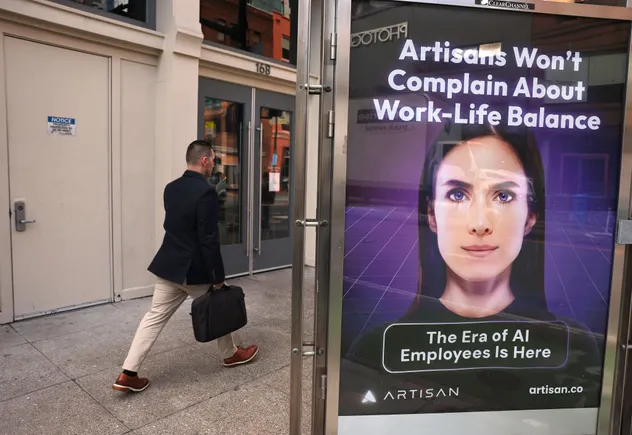Leaders may be inadvertently leaving their workers behind regarding artificial intelligence tool use, making them feel unheard and unsupported, according to two separate reports released last week.
While 82% of executives and 68% of managers said they use AI, only 35% of individual contributors said they currently use it, according to a Perceptyx report released Oct. 16. The firm surveyed 3,600 workers across North America and Europe.
Individual contributors were also the least confident and least aware or understanding of AI adoption decisions; less than half said their organizations are transparent about AI use, and even less said AI-supported decisions are fair.
“These findings show us that global AI adoption is not just a productivity story, it’s a stress test for organizational culture and trust,” Brad Wilson, global head of workforce insights and innovation at Perceptyx, said in a statement. “Organizations that ignore gaps in trust, fairness, and manager enablement risk disengaging employees, especially those closest to day-to-day execution.”
Notably, 84-90% of managers and executives said that they need new skills due to AI, compared to 67% of individual contributors, which may indicate a disconnect over who needs upskilling and why.
Another report on AI released Oct. 15 by The Predictive Index, also pointed to potential contributor distrust of their leaders and a lack of training.
While the 1,000 white-collar workers surveyed were generally more positive about the impact of AI at work — 67% surveyed said the technology could strengthen company culture — nearly half said that their input does not shape adoption. Additionally, 68% said they want more training during the AI adoption process, more so than job security guarantees and promotions, PI said.
Perhaps most concerningly for HR professionals: 7 in 10 question HR’s ability to adopt AI fairly.
The findings overall indicate that the workforce is “largely optimistic” about AI, PI said, but workers are looking for “leadership that meets them where they are.”
“Too many employees aren’t hearing enough from executives about AI, so they’re turning to peers and HR to fill in the blanks,” Matt Poepsel, vice president and godfather of talent optimization at PI, said in a statement. “What’s underlying all of this is trust, a gap that has less to do with the technology itself and more to do with a tight job market, economic uncertainty, and a strained employer-employee relationship that’s been building for years.”
The employee and leader disconnect over AI has been documented in other studies. For example, nearly half of CEOs surveyed by Kyndryl said their workers were resistant to AI adoption, and half also said that they lack the skilled workers to manage AI, according to a report released in May.
The technology could also heighten loneliness, a July report from Moo said; additionally, workers may need better onboarding to properly use AI tools, that report noted.





Leave a Reply